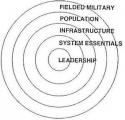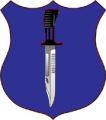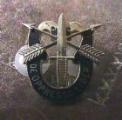My statement was not my opinion that was and is the official Air Force position on their reorganization of forces. My opinion is you can "dedicate" a certain number of forces of any type to a Strategic Mission and say that they are Strategic Bombers ,but it has nothing to do with a type of Plane. What if a SF type infiltrated into the designated Strategic target with a suitcase Nuke is he not a Strategic bomber? Especially if his sole mission was to prepare for and train for nothing but that. I believe it is the dedication of certain assets to certain missions that makes them or doesn't make them Strategic.




 Reply With Quote
Reply With Quote







Bookmarks